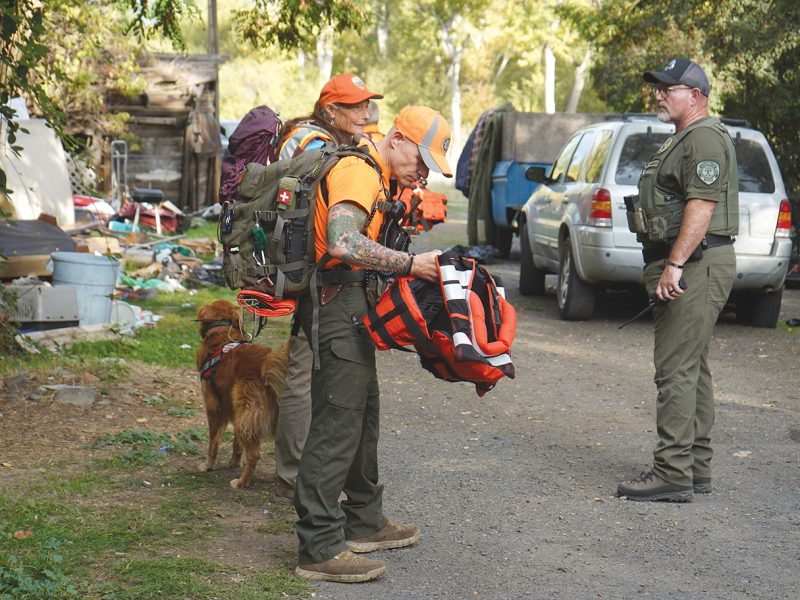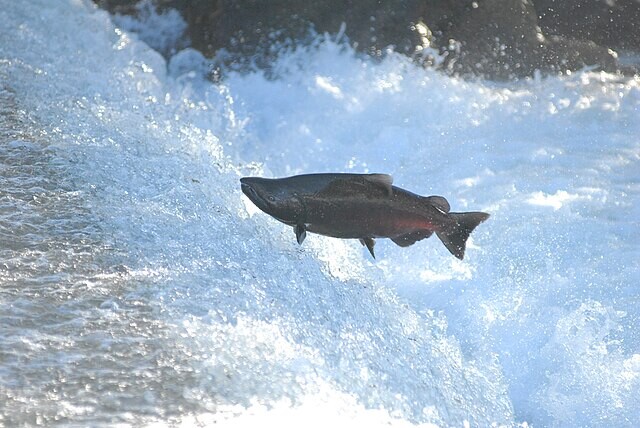The Confederated Tribes of the Umatilla Indian Reservation’s Board of Trustees voted 8-0 on Monday, October 19, to reaffirm and amend its Fish Accord with Bonneville Power Administration, the U.S. Army Corps of Engineers and the Bureau of Reclamation (together, “Action Agencies”). The Accord funds CTUIR fisheries and wildlife projects in the Tucannon, Walla Walla, Grande Ronde, North Fork John Day, and Umatilla ceded river watersheds, and since 2008 has resulted in about 87 miles and 2,800 acres of floodplain enhancement, Pacific lamprey passage installations and outplanting and recovery, Pacific lamprey and freshwater mussel propagation research, biological monitoring, fish passage operations, fish supplementation operations, and also the Walla Walla spring chinook hatchery, slated for completion in 2021.The CTUIR and Action Agencies originally signed an Accord Extension from 2018-2022, but the Trump administration subsequently moved up the timeline for the National Environmental Policy Act Environmental Impact Statement for the Federal Columbia River Power System (FCRPS) to 2020, calling into question the timeframe of the Accord and motivating this reaffirmation and amendment. The Action Agencies signed the reaffirmation on September 24, 2020, and with the BOT’s approval, the Accord reaffirms the funding agreement’s term through 2022.
The subset of the FCRPS projects, known as the Columbia River System (CRS), is managed as a coordinated system for multiple congressionally authorized public purposes by the federal action agencies. Under Endangered Species Act consultation for the CRS, the effects of the operation, maintenance, and management of the 14 federal dam and reservoir projects are evaluated. The Action Agencies operate and maintain the 14 federal CRS projects to meet Congressionally authorized purposes including flood risk management, fish and wildlife conservation, power system management, irrigation/water supply, navigation, recreation, system maintenance, water quality, and municipal and industrial water supply, though not every project is authorized for every one of these purposes.
Chair Kat Brigham said of the renewed Accord, “While we’ve seen progress in tributary fish habitat conditions and lamprey returns, it’s clear we need to do more. Salmon fishing opportunities for our tribal members haven’t been consistent enough and we need more fish. Reaffirming our Accord keeps in place the funding we expected since 2018, and gives us time to develop additional tools to address salmon recovery. We need an energy policy that can help change hydro operations to speed salmon recovery and a marine policy to help us advocate for our fish and their ocean habitat.”
While in early accord years salmon returns afforded treaty fishing opportunities in up to nine CTUIR tributaries, returns in the last four years have been poor, limiting harvest opportunities. Pacific Lamprey restoration results have provided significant increases in juvenile outmigration, and returns to the Umatilla in 2019 provided fishing opportunities for CTUIR members for the first time in an estimated 75 years.
The amendments to the CTUIR’s Accord remove a previous requirement that the CTUIR affirm the adequacy of the Federal Columbia River System environmental compliance documents. The CTUIR has criticized the 2020 CRS Operations Environmental Impact Statement and Biological Opinion for lacking, among other items, adequate technical, cultural, and tribal societal impact analyses. The amendments also call on good faith negotiations by the parties to resolve cultural resource and other long-standing policy interests. The amendments also provide off-ramps for exiting the Accord should CTUIR decide to instead litigate FCRPS issues.
Consistent with the reaffirmation and amendments, the BOT’s resolution required staff, over the next two years to develop, with involvement of CTUIR Fish and Wildlife and Water Commissions and Cultural Resources Committee, and with the Columbia River Inter-Tribal Fish Commission (CRITFC), tribal treaty and social impact reports, a marine policy, and an energy policy that will inform alternatives to the management and operation of the lower four Snake hydroelectric facilities, including breaching.
“We will be coordinating through our internal CTUIR Columbia River Accord group and CRITFC to leverage relationships and resources in the region to develop these other tools to complement our tributary restoration, production, harvest and ultimately our River Vison efforts.” stated Jeremy Wolf, Vice-Chair of the Board of Trustees and Chair of the Fish and Wildlife Commission.
Other parties to this Fish Accord include the Yakama Indian Nation and the Confederated Tribes of Warm Springs Reservation of Oregon. Parties with a similar Accord or Memorandum of Agreement include the Colville Confederated Tribes, the Shoshone-Bannock Tribe, and the States of Washington, Montana and Idaho.
The Confederated Tribes of the Umatilla Indian Reservation is made up of the Cayuse, Umatilla, and Walla Walla Tribes, formed under the Treaty of 1855 at the Walla Walla Valley, 12 statute 945. In 1949, the Tribes adopted a constitutional form of government to protect, preserve and enhance the treaty rights guaranteed under federal statute.



